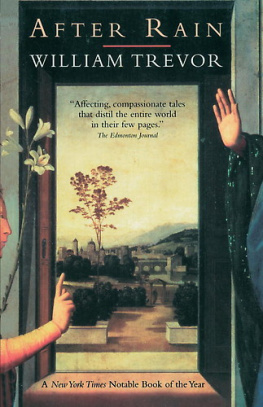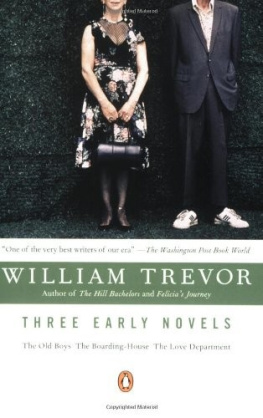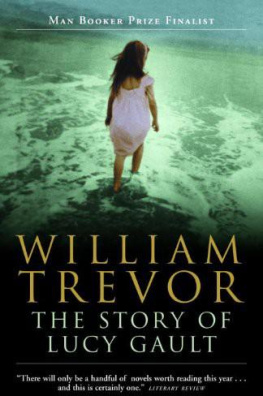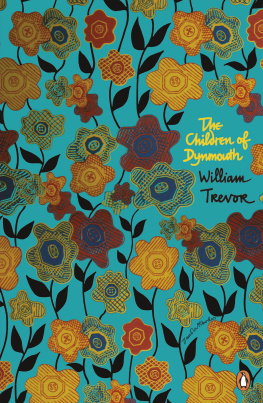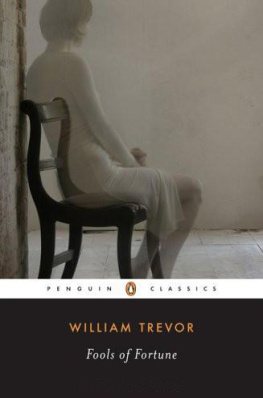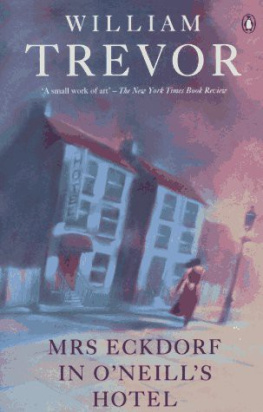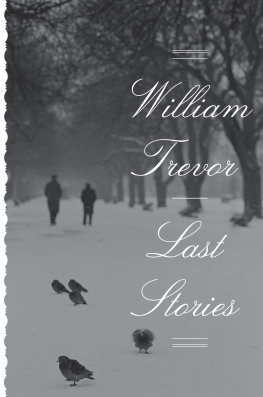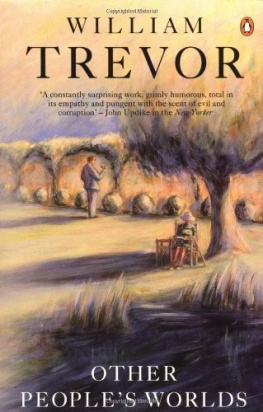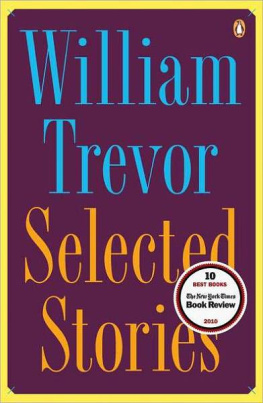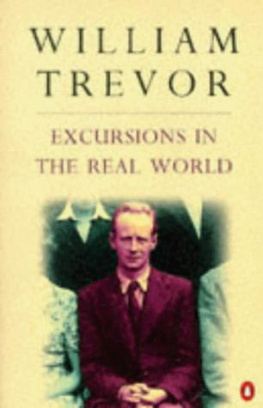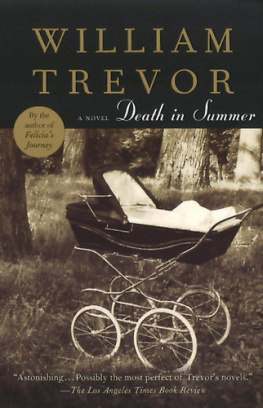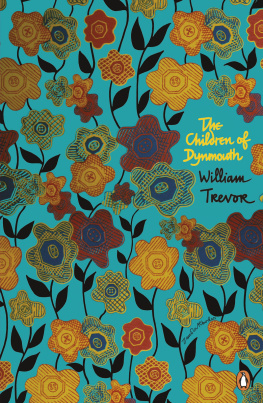William Trevor - After Rain
Here you can read online William Trevor - After Rain full text of the book (entire story) in english for free. Download pdf and epub, get meaning, cover and reviews about this ebook. genre: Detective and thriller. Description of the work, (preface) as well as reviews are available. Best literature library LitArk.com created for fans of good reading and offers a wide selection of genres:
Romance novel
Science fiction
Adventure
Detective
Science
History
Home and family
Prose
Art
Politics
Computer
Non-fiction
Religion
Business
Children
Humor
Choose a favorite category and find really read worthwhile books. Enjoy immersion in the world of imagination, feel the emotions of the characters or learn something new for yourself, make an fascinating discovery.
- Book:After Rain
- Author:
- Genre:
- Rating:5 / 5
- Favourites:Add to favourites
- Your mark:
- 100
- 1
- 2
- 3
- 4
- 5
After Rain: summary, description and annotation
We offer to read an annotation, description, summary or preface (depends on what the author of the book "After Rain" wrote himself). If you haven't found the necessary information about the book — write in the comments, we will try to find it.
After Rain — read online for free the complete book (whole text) full work
Below is the text of the book, divided by pages. System saving the place of the last page read, allows you to conveniently read the book "After Rain" online for free, without having to search again every time where you left off. Put a bookmark, and you can go to the page where you finished reading at any time.
Font size:
Interval:
Bookmark:
After Rain
William Trevor
Table of Contents
The Piano Tuner's Wives
Violet married the piano tuner when he was a young man. Belle married him when he was old.
There was a little more to it than that, because in choosing Violet to be his wife the piano tuner had rejected Belle, which was something everyone remembered when the second wedding was announced. Well, she got the ruins of him anyway, a farmer of the neighbourhood remarked, speaking without vindictiveness, stating a fact as he saw it. Others saw it similarly, though most of them would have put the matter differently.
The piano tuners hair was white and one of his knees became more arthritic with each damp winter that passed. He had once been svelte but was no longer so, and he was blinder than on the day he married Violet a Thursday in 1951, June 7th. The shadows he lived among now had less shape and less density than those of 1951.
I will, he responded in the small Protestant church of St Colman, standing almost exactly as he had stood on that other afternoon. And Belle, in her fifty-ninth year, repeated the words her one-time rival had spoken before this altar also. A decent interval had elapsed; no one in the church considered that the memory of Violet had not been honoured, that her passing had not been distressfully mourned. and with all my worldly goods I thee endow, the piano tuner stated, while his new wife thought she would like to be standing beside him in white instead of suitable wine-red. She had not attended the first wedding, although she had been invited. Shed kept herself occupied that day, whitewashing the chicken shed, but even so shed wept. And tears or not, she was more beautiful and younger by almost five years - than the bride who so vividly occupied her thoughts as she battled with her jealousy Yet he had preferred Violet or the prospect of the house that would one day become hers, Belle told herself bitterly in the chicken shed, and the little bit of money there was, an easement in a blind mans existence. How understandable, she was reminded later on, whenever she saw Violet guiding him as they walked, whenever she thought of Violet making everything work for him, giving him a life. Well, so could she have.
As they left the church the music was by Bach, the organ played by someone else today, for usually it was his task. Groups formed in the small graveyard that was scattered around the small grey building, where the piano tuners father and mother were buried, with ancestors on his fathers side from previous generations. There would be tea and a few drinks for any of the wedding guests who cared to make the journey to the house, two miles away, but some said goodbye now, wishing the pair happiness. The piano tuner shook hands that were familiar to him, seeing in his mental eye faces that his first wife had described for him. It was the depth of summer, as in 1951, the sun warm on his forehead and his cheeks, and on his body through the heavy wedding clothes. All his life he had known this graveyard, had first felt the letters on the stones as a child, spelling out to his mother the names of his fathers family. He and Violet had not had children themselves, though theyd have liked them. He was her child, it had been said, a statement that was an irritation for Belle whenever she heard it. She would have given him children, of that she felt certain.
Im due to visit you next month, the old bridegroom reminded a woman whose hand still lay in his, the owner of a Steinway, the only one among all the pianos he tuned. She played it beautifully He asked her to whenever he tuned it, assuring her that to hear was fee enough. But she always insisted on paying what was owing.
Monday the third I think it is.
Yes, it is, Julia.
She called him Mr. Dromgould: he had a way about him that did not encourage familiarity in others. Often when people spoke of him he was referred to as the piano tuner, this reminder of his profession reflecting the respect accorded to the possessor of a gift. Owen Francis Dromgould his full name was.
Well, we had a good day for it, the new young clergyman of the parish remarked. They said maybe showers but sure they got it wrong.
The sky -?
Oh, cloudless, Mr. Dromgould, cloudless.
Well, thats nice. And youll come on over to the house, I hope ?
He must, of course, Belle pressed, then hurried through the gathering in the graveyard to reiterate the invitation, for she was determined to have a party.
Some time later, when the new marriage had settled into a routine, people wondered if the piano tuner would begin to think about retiring. With a bad knee, and being sightless in old age, he would readily have been forgiven in the houses and the convents and the school halls where he applied his skill. Leisure was his due, the good fortune of company as his years slipped by no more than he deserved. But when, occasionally, this was put to him by the loquacious or the inquisitive he denied that anything of the kind was in his thoughts, that he considered only the visitation of death as bringing any kind of end. The truth was, he would be lost without his work, without his travelling about, his arrival every six months or so in one of the small towns to which he had offered his services for so long. No, no, he promised, theyd still see the white Vauxhall turning in at a farm gate or parked for half an hour in a convent play-yard, or drawn up on a verge while he ate his lunchtime sandwiches, his tea poured out of a Thermos by his wife.
It was Violet who had brought most of this activity about. When they married he was still living with his mother in the gate-lodge of Barnagorm House. He had begun to tune pianos the two in Barnagorm House, another in the town of Barnagorm, and one in a farmhouse he walked to four miles away In those days he was a charity because he was blind, was now and again asked to repair the sea-grass seats of stools or chairs, which was an ability he had acquired, or to play at some function or other the violin his mother had bought him in his childhood. But when Violet married him she changed his life. She moved into the gate-lodge, she and his mother not always agreeing but managing to live together none the less. She possessed a car, which meant she could drive him to wherever she discovered a piano, usually long neglected. She drove to houses as far away as forty miles. She fixed his charges, taking the consumption of petrol and wear and tear to the car into account. Efficiently, she kept an address book and marked in a diary the date of each next tuning. She recorded a considerable improvement in earnings, and saw that there was more to be made from the playing of the violin than had hitherto been realized: Country-and-Western evenings in lonely public houses, the crossroads platform dances of summer a practice that in 1951 had not entirely died out. Owen Dromgould delighted in his violin and would play it anywhere, for profit or not. But Violet was keen on the profit.
So the first marriage busily progressed, and when eventually Violet inherited her fathers house she took her husband to live there. Once a farmhouse, it was no longer so, the possession of the land that gave it this title having long ago been lost through the fondness for strong drink that for generations had dogged the family but had not reached Violet herself.
Now, tell me whats there, her husband requested often in their early years, and Violet told him about the house she had brought him to, remotely situated on the edge of the mountains that were blue in certain lights, standing back a bit from a bend in a lane. She described the nooks in the rooms, the wooden window shutters he could hear her pulling over and latching when wind from the east caused a draught that disturbed the fire in the room once called the parlour. She described the pattern of the carpet on the single flight of stairs, the blue-and-white porcelain knobs of the kitchen cupboards, the front door that was never opened. He loved to listen. His mother, who had never entirely come to terms with his affliction, had been impatient. His father, a stableman at Barnagorm House whod died after a fall, he had never known. Lean as a greyhound, Violet described his father from a photograph that remained.
Next pageFont size:
Interval:
Bookmark:
Similar books «After Rain»
Look at similar books to After Rain. We have selected literature similar in name and meaning in the hope of providing readers with more options to find new, interesting, not yet read works.
Discussion, reviews of the book After Rain and just readers' own opinions. Leave your comments, write what you think about the work, its meaning or the main characters. Specify what exactly you liked and what you didn't like, and why you think so.

